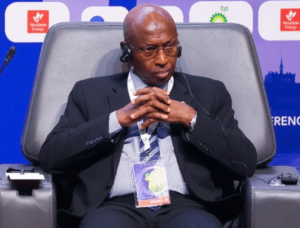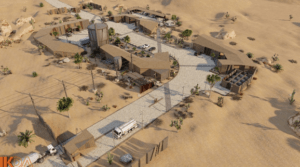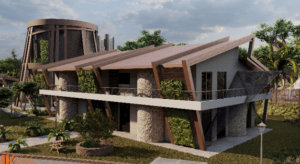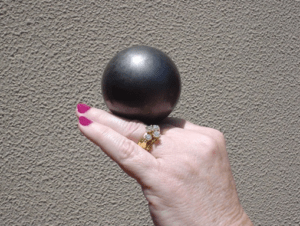By Kelvin KEMM (Dr)
The establishment of the Africa Energy Bank has come about as a matter of real need.
Africa has been squeezed by many in the western world to toe their line in terms of energy production. Africa has become the playground of many European politicians, and not in the normal nice sense of the term.
They are using African countries to make themselves feel good in their home countries, about how they have disciplined Africans to heed the apparent climate challenge, and to not expand hydrocarbon-based energy. One of the ‘crowbars’ that they use is to induce banks to refuse financing for hydrocarbon developments.
This is an immoral position. Should Africans really curtail their economic development? Should we curtail the building of towns, cities, rail infrastructure, harbours, and much more, so that European politicians can brag that are they are reducing world carbon dioxide emissions, which incidentally, don’t matter anyway.
I fully support the sensible words of Dr Omar Farouk Ibrahim, of the African Petroleum Producers Organisation (APPO), when he said; “We are not focused on reducing the use, or exploitation, of fossil fuels at this time. We are committed to producing all forms of energy that we can get, to rid our continent of energy poverty. We are at the same time doing this in the best possible way, such that we do it in an environmentally-friendly way.”
Good for you, Dr Ibrahim, energy is the lifeblood of any society. You have to keep the lifeblood flowing. It is in everybody’s interests to do that, in the most efficient and effective way possible, and in the cleanest way possible.

Huge resources of petroleum and gas have been found in various African countries. We must use them.
This hydrocarbon bounty is a relatively newly-discovered benefit, so African countries now have the opportunity to think about it in a wise and strategic manner. The African continent is very large.
In fact, it is larger than the US, China, Europe and India, added together. So, not only do African countries need to get the oil and gas to the surface, they also need to move it around, over large distances. It is also necessary to process it and refine it.
What can you do with oil? You can burn it, to produce electricity. But much smarter is to separate it into its different fractions, such as petrol, diesel, or aviation fuel.… or to go even further, and dismantle the complex chemical molecules, and then rebuild them into other chemicals; like plastic, waxes, ladies’ cosmetics, and aspirin, as is done by SASOL in South Africa.
OK, great. So where do we get the electricity to do all that, or find some high temperature heat to use directly for distillation. Well, you use nuclear power. This is all a perfectly feasible option for any African country.
Right now, we are experiencing a worldwide wave, or tsunami, of interest in Small Modular Reactors (SMR). South Africa was the first country in the world to start developing a commercial SMR, some 30 years ago. Today, this initiative manifests itself as the HTMR-100 reactor, developed in South Africa, under the umbrella of a private company, Stratek Global.
Of particular note, is that the reactor is Helium gas-cooled, which means that it does not have to be near a large body of water. You can mark a cross on any map, anywhere you like, and build the reactor there. So, you can take the power to where you need it, unlike coal where you have to build the power station near where the coal is.
The HTMR-100 produces 35 MW of electricity, or 100 MW of heat at 750o C. An SMR complex is designed to take up to ten reactors all controlled by one control room. An owner can add extra reactors as time passes, as the demand requires, or as finances allow.

Half of the reactor is housed underground (the cylindrical building).

Of great interest, are some dramatic thoughts coming out of some African thinkers, to potentially build long-distance pipelines to deliver oil and gas over the very long African distances. Excellent.
So, what we do, is we build a Small Modular Reactor to provide the electricity to pump the oil. Possibly, someone can refine the oil into fuel first, near the oil source, and then pump petrol and diesel.
Now is the time to think deeply… to think widely, over distances, ideas, and possibilities. With inter-country cooperation, and the vision and wisdom of the correct leaders, we can do that.
Utilising the modern Internet, it is not difficult to interlink systems over any distance. So, we can contemplate dozens of nuclear reactors, spread all over Africa, and all interlinked, and monitored from one or more central monitoring stations.
To such an end, it would be good if many of the reactors are of the same type. This would facilitate operations, maintenance, training of staff, and much more. A truly cooperative African effort.
So, now what springs to mind is nuclear fuel. The necessary Uranium or Thorium fuel has been developed in South Africa. It is called; TRISO, and it is a very specialised product.

Half a dozen of these fuel balls will supply all the electricity required for a family of four for ten years.
However, very good news is that with nuclear you need so little fuel that it is truly amazing. The entire fuel-load for a nuclear reactor, for a year, can be carried in one truck. The entire fuel requirement for a decade can fit in one small on-site building. You certainly can’t do that with coal.
We cannot tolerate energy poverty in Africa. Energy poverty means a stagnation of economic growth, just as much as it means that hundreds of millions of Africans will have to continue cooking dinner over an outdoor wood or dung fire.
By the way, wood or dung are significant producers of carbon dioxide, plus all sorts of other unhealthy byproducts, like; ash, soot, and other chemicals. So, getting rid of the fires will be immensely environmentally advantageous.
In fact, building hydrocarbon processing plants will reduce the carbon dioxide emitted to the atmosphere, if they can result in a reduction of the multitude of cooking fires.
So best wishes to the Africa Energy Bank, and to people like Dr Ibrahim who says what needs to be said.
Dr Kemm is a nuclear physicist and is Past Chairman of the South African Nuclear Energy Corporation (Necsa). He is currently Chairman of Stratek Global, a nuclear project management company based in Pretoria, South Africa. The company carries out strategy development and project planning in a wide variety of fields for diverse clients. They are working towards building an HTMR-100 in Pretoria. [email protected].
www.stratekglobal.com










